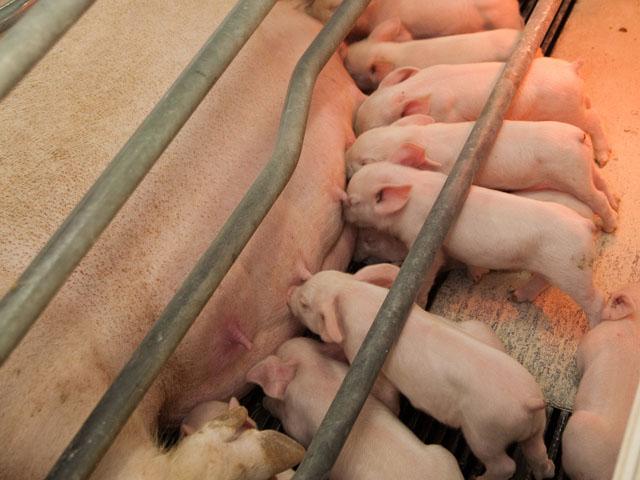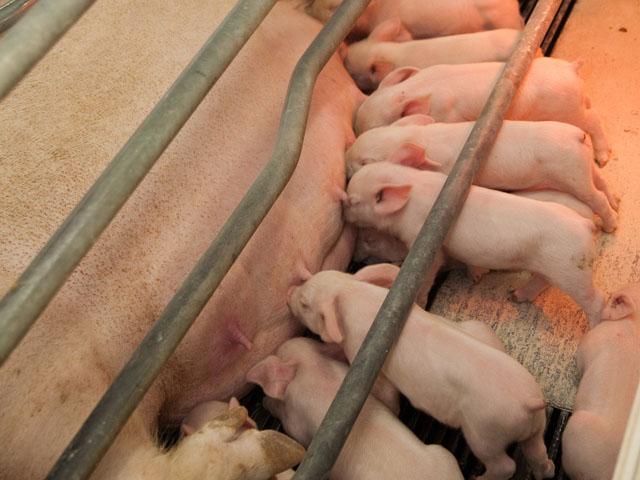An Urban's Rural View
There's Always Congress, Pork Producers
The U.S. Supreme Court's 5-4 decision allowing California to regulate pig production has implications far beyond pork. (https://www.supremecourt.gov/…) With states becoming increasingly aggressive in legislating about farming and food, the farmers and food producers affected by the legislation will get no relief from the courts.
Their only recourse will be Congress. Recourse to Congress is not affected by the decision. Justice Neil Gorsuch, writing for the majority, said "everyone agrees" that the constitution gives Congress "the right to regulate the interstate trade of pork" and to preempt conflicting state laws on that trade.
Preemption is what happened several years ago when states began requiring GMO labeling on food packaging. Congress stepped in and imposed a national standard, one that fell short of what anti-GMO advocates wanted. USDA's regulations under that law have been challenged in court, but not Congress's right to enact it. (https://www.dtnpf.com/…)
But what if Congress doesn't act, as it hasn't on pork? In that case Supreme Court precedents have held that states can ban products they judge prejudicial to their citizens' interests. There's one exception, the so-called "dormant Commerce Clause." The pork case decision was a dispute about the breadth of this exception.
According to the majority, the dormant Commerce Clause means states can't discriminate against products from other states even if Congress hasn't acted. That is, the states can't legislate to protect their producers against competitors in other states. The same rules must apply to producers anywhere in the U.S. (One other recognized violation of the dormant Commerce Clause, not at issue here, involves state laws regulating trucks, trains and other "instruments" of commerce.)
Although California produces relatively little pork, the state's law would apply to any California producers as well, and the parties agreed California's law doesn't discriminate.
The National Pork Producers Council and the American Farm Bureau Federation tried in their suit against California to convince the courts that the dormant Commerce Clause doesn't require discrimination. In their reading of court precedents, the dormant Commerce Clause bans states from passing laws that will have big effects on out-of-state producers, as California's Proposition 12 clearly will.
P[L1] D[0x0] M[300x250] OOP[F] ADUNIT[] T[]
The district court, the appeals court and now a 5-4 majority of the Supreme Court have rejected that view.
The justices were all over the lot. Two liberals, Sonia Sotomayor and Elena Kagan, joined conservatives Gorsuch, Clarence Thomas and Amy Coney Barrett to constitute the majority. But the liberals didn't agree with every section of the opinion and neither did Barrett.
The other four justices concurred with parts of the decision and dissented with other parts.
One of the most important issues dividing the justices centered on the powers of the courts. A 1970 Supreme Court case held that a nondiscriminatory state law should be upheld unless the burden on interstate commerce is "clearly excessive in relation to the putative local benefits."
Justices Gorsuch, Barrett and Thomas said courts aren't capable of this kind of cost-benefit analysis because the costs and benefits are of a different nature, requiring the analyst to do something like deciding "whether a particular line is longer than a particular rock is heavy." Making these kind of tradeoffs is the business of democratically elected legislatures, they argued.
If this part of the decision had gained majority support, it would have overruled the 1970 case and potentially undermined many other kinds of balancing tests that courts apply.
For pork producers who don't spend their time studying legal doctrines, it will seem odd that five justices did not think California's law imposes a substantial burden on interstate commerce. Yes, the court effectively said, pork producers may have to spend hundreds of millions if they want to sell in California. But those are "compliance costs," not restrictions on commerce. (Chief Justice John Roberts' dissent challenged this idea.) They can still sell in California if they adjust.
As DTN Staff Reporter Todd Neeley has pointed out in his analysis of the case (https://www.dtnpf.com/…), the real-world impact will be huge. He quoted a 2021 Rabobank report maintaining "less than 4% of the U.S. sow housing (is) currently able to meet the new standard." Rabobank estimated complying would cost $3 million to $4 million for an average barn.
It probably didn't help the plaintiffs' case that the industry was divided. In a footnote, the majority noted that smaller out-of-state producers filed a friend-of-the-court brief hailing the opportunities offered by California's law. Other friend-of-the-court briefs by some larger companies said they'd already started to comply or intended to.
There's always Congress, pork producers. You haven't succeeded there in the past, but you can try, try again. Justice Brett Kavanaugh, writing in dissent, said the decision could go beyond pork. It could "foreshadow a new era where states shutter their markets to goods produced in a way that offends their moral or policy preferences."
The majority in this case -- three conservatives and two liberals -- don't see a legal problem with that. For anyone who does, well, there's always Congress.
Urban Lehner can be reached at urbanize@gmail.com
(c) Copyright 2023 DTN, LLC. All rights reserved.






Comments
To comment, please Log In or Join our Community .